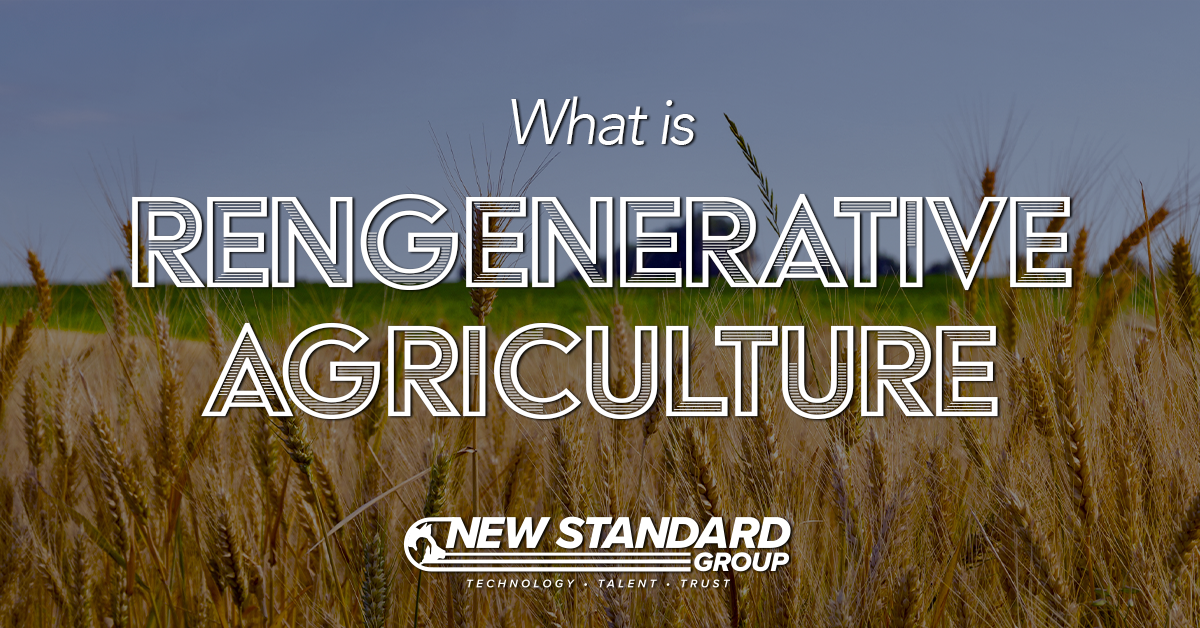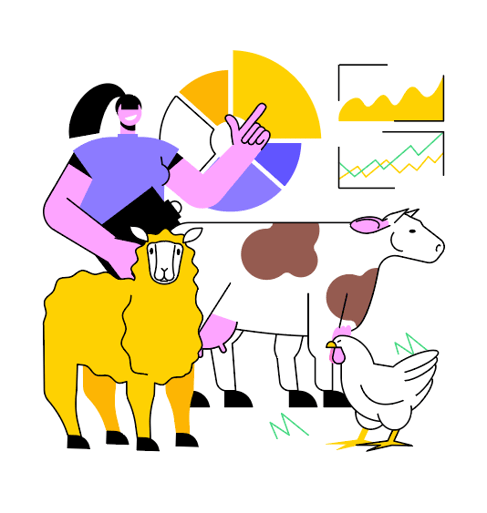
By definition, the two separate terms are as follows:

Regenerative – adjective, relating to something growing or being grown again.
Agriculture – noun, the practice or work of farming.
Wait - isn’t that somewhat repetitive? When we take a step back and look at Agriculture, the premise is to repeat and build on the successes of the past year. For example, dairy farming. Cows are bred to produce offspring but as a result they produce milk to collect. Those same farmers plant crops to produce feed for their dairy cows. This is a cycle that is repeated year after year.
Simply put, Agriculture itself is already a regenerative practice. Can it be improved upon? Absolutely. Should it be improved upon? Most definitely.
The world’s population is growing at alarming rates and land is being reallocated for urban development. Producers are feeling the pressure to seek out options for increasing efficiency and output for their operations. Producers within Agriculture work hard to be good stewards of the land, with an understanding that what they put in will directly impact what they receive. Practices such as no-till or reduced till farming, cover crops, tailwater collection systems are already in place, but the need to be even more efficient is prevalent.
So, what are ‘Regenerative Agriculture’ Solutions?
Creative solutions have entered the marketplace in the past 10 years, seemingly taking a page out of gardener’s books. Vertical farming systems are providing an answer to $100,000/acre farmland – condensing upwards of 50 acres into a 5,000sq ft tower, turning over a new harvest of fodder every week while using just 5% of the amount of water needed in a field.

Electric vehicles are becoming increasingly popular on the road – and in the barn. Automated feeding systems are part of the green network, scraping manure, collecting deadstock, bedding stalls/barns, and mixing, delivering, and pushing feed. These electric powered machines negate the need for diesel powered tractors being used to do such tasks.
The idea of recycling water is far from new as towns, cities and municipalities have been employing this idea (especially in desert climates) for decades. Capturing water runoff from fields, buildings, or cooling processes negates the need to pull from a well for wash water or livestock watering, ensuring water availability regardless of drought conditions.
Repurposing by-product of production, such as methane from manure, is also considered an aspect of regenerative agriculture. Not only does it remedy an odor control issue some producers face when located near major centers, the biogas that contains methane can be collected to produce heat, electricity or hot water. While ‘small-scale’ producers can use this produced energy to supply their needs, large-scale farms are able to sell the energy back to the grid.
Further, to repurposing methane, aerating manure while in the pit under barn lends a hand to reducing diesel needed to agitate a pit, creates a safer environment for both livestock and employees, as well as increases the nutrient values for application onto crops. Not only does this reduce the need to purchase fertilizer, it reduces the need to run equipment to apply said fertilizer.
Of course, we would be remiss to leave out alternate energy sources such as solar power, electric vehicles (farm trucks, skid steers, tractors and more) as a potential addition to the solutions line-up.
When we take a step back and look at the big picture, Regenerative Agriculture is essentially implementing technology, equipment, and methods to improve agri-food production systems, while reducing environmental or social impact, or in some cases, providing a net-positive impact.
Interested in learning more? Stay tuned for further articles, or visit pennerfarmservice.com/regenag
Click to learn how our Regenerative Agriculture Services can benefit for your farm today!




